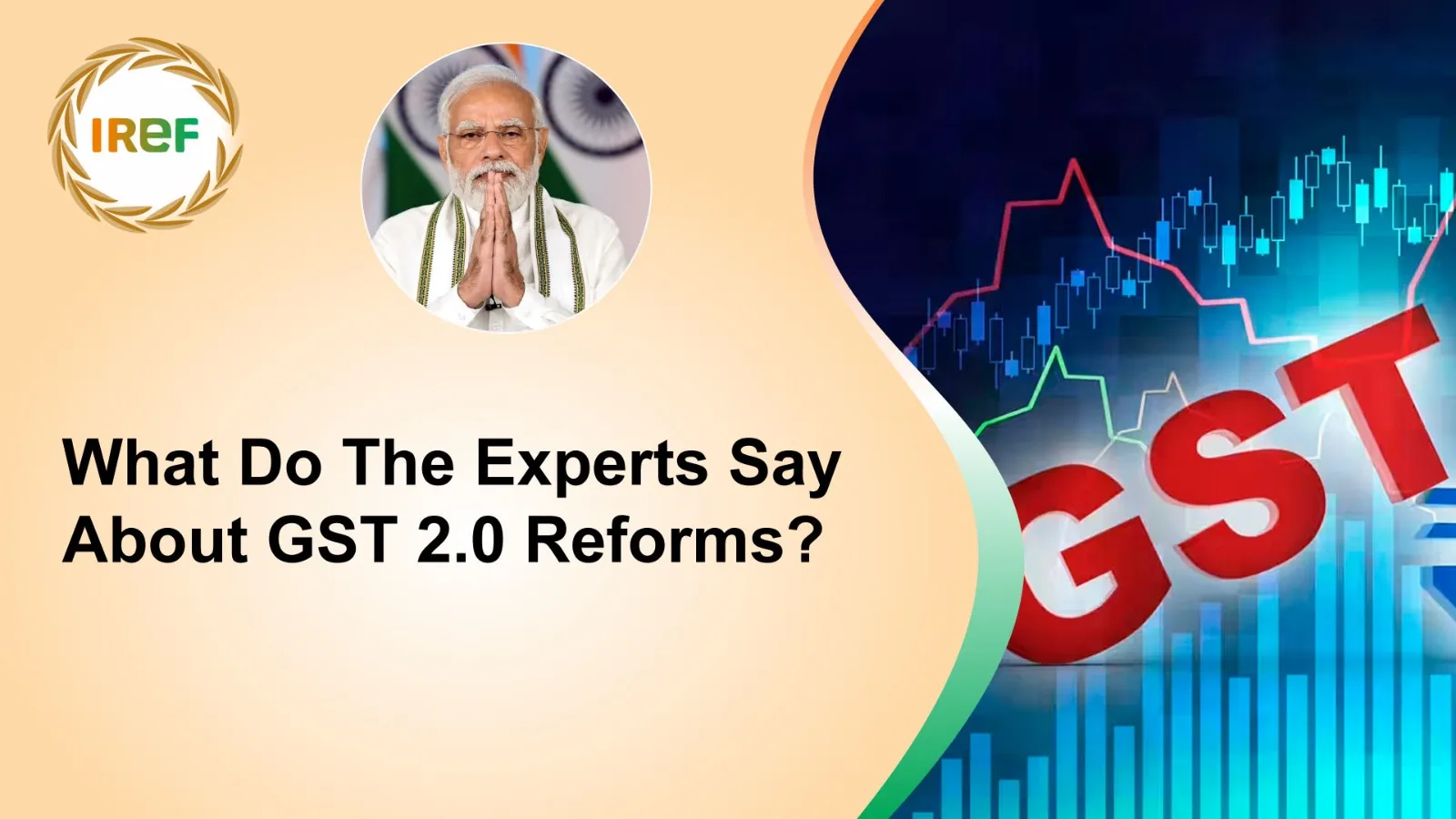What Do The Experts Say About GST 2.0 Reforms?

On September 3, 2025, the 56th GST Council meeting delivered the most tax extensive reform since GST implementation for almost every sector of the economy. Under Finance Minister Nirmala Sitharaman's leadership, the Council approved sweeping changes that seem to make essential goods affordable while supposedly overloading luxury/sin goods to maintain revenue streams.
Here are some opinions shared by experts on the GST 2.0 reforms
CII Telangana chairman RS Reddy and vice-chairman M Goutham Reddy have considered the GST 2.0 Reforms as a landmark move that will benefit the micro, small and medium enterprises (MSME) sector and the food and agricultural sector.R S Reddy has stated that the simplified compliance structure under GST 2.0 is a game-changer for MSMEs.
Moreover, R Ravi Kumar, Federation of Telangana Chambers of Commerce and Industry (FTCCI) president, also called the rationalisation of GST rates by combining 12% and 28% slabs into 5% and 18% categories a milestone towards a simpler and more inclusive tax regime. Furthermore, the FTCCI chief said these reforms are predicted to bring significant cost relief to sectors such as construction and textiles, with the GST on cement reduced from 28% to 18% and man-made textiles now taxed at 5%.
Tax Expert Ajay Rotti’s take on GST2.0 Reforms
According to Tax Expert Ajay Rotti, Health insurance is now tax-free, and rates are reduced for medicines and devices. This is awelfare move, not just an economic one, since India lacks full public healthcare or social security. But since tax credits are lost on exempt items, consumers might not get the full 18% benefit While disagreeing with the term loss for GST 2.0 reforms, he says it’s more of a short-term impact. He says: “Lower taxes can boost consumption, and long-term revenue may recover or even grow.
In the end, he says that these reforms mark a shift from political compromise to economic logic. GST still has challenges, especially in administration and enforcement. But this is a major step forward, setting the stage for a more efficient and business-friendly tax system.